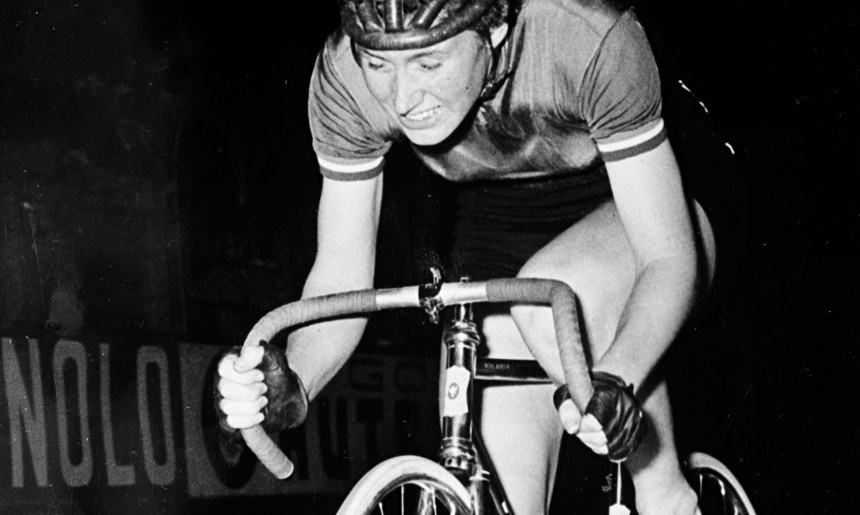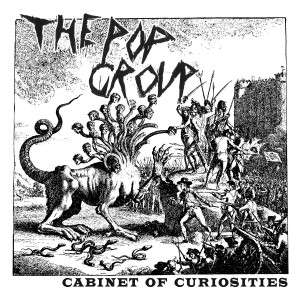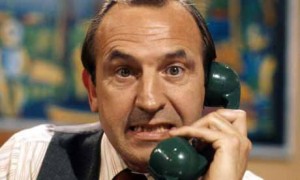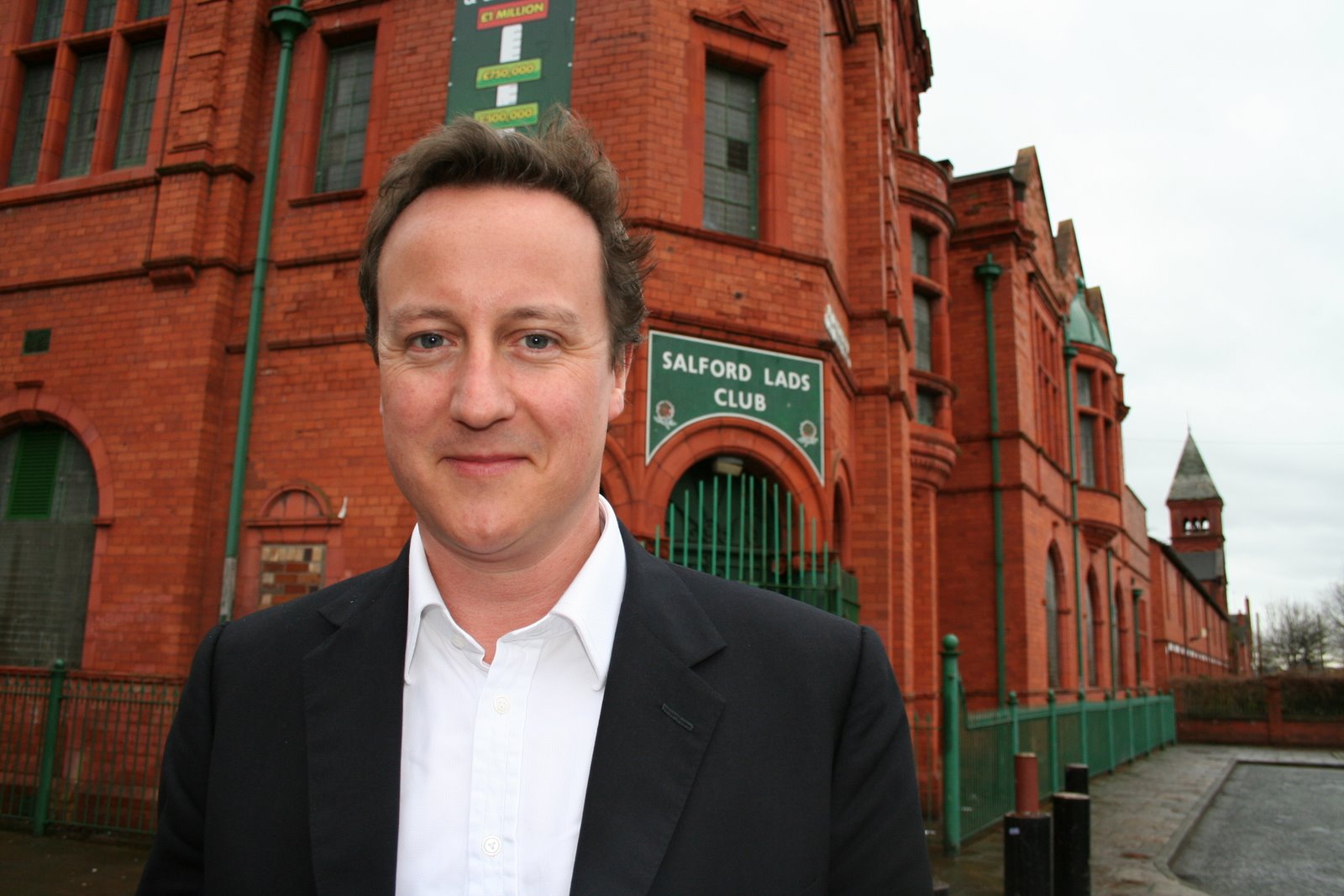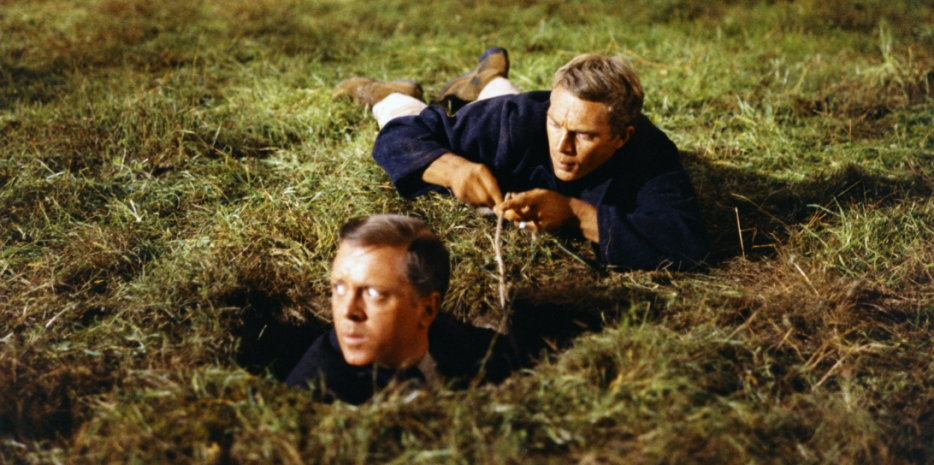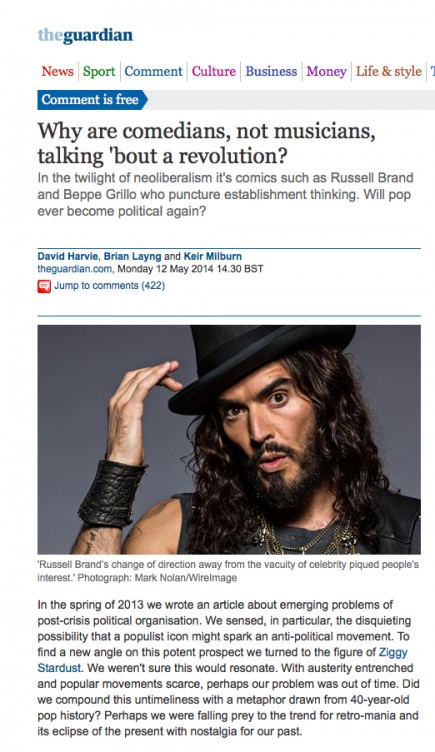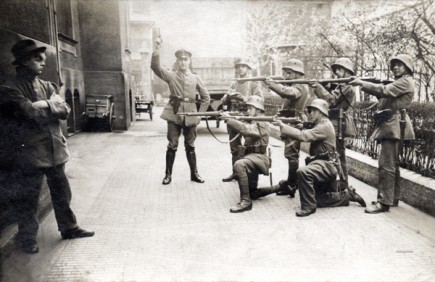
For me, one of the best things about last weekend’s FAST FORWARD festival was seeing two comrades I organised with in the early- to mid-1990s. We’ve been involved in different political projects over the intervening two decades, we live in different cities, different countries even. But every year or so I encounter one or the other of them. At some demonstration or protest. At a conference. Maybe a social event where there’s a bunch of politicos. I like the fact that we share political histories stretching back a quarter-century. I like it that I know these people who keep turning up, on the streets (or in the fields — I’m thinking of the summit protests of the counter-globalisation movement and climate camps), in our political meeting spaces, like bad pennies. Enoch Root types. The radical. Enoch the Red. It’s definitely to the credit of Plan C, FAST FORWARD and its organisers, that these bad pennies were attracted to the festival.
There was some discussion of diversity — or the lack of it — at FAST FORWARD. Too few black people, for example. And where were the trans people? (Perhaps they were there, but we didn’t know.) But why do we care about this? After all, we’re not sociologists or pollsters who need a representative sample of the population. I think it does matter: different ‘sectors’ or ‘sections’ (of the ‘class’, the ‘multitude’, the ’99% — delete according to your preferred political tradition) experience capitalism in different ways and they (we) have different experiences of struggle. These experiences are valuable in informing collective analysis (i.e. understanding our situation(s) and our power) and collective strategising.
But my two old comrades apart, there were precious few older heads at FAST FORWARD — and certainly no-one who’d count as an ‘elder’. And there weren’t that many children either — 15 or 16, which is certainly more than at most political events of similar size, but still not that many out of 160-odd participants. Another way of saying this — though not exactly equivalent for several reasons — is that not many parents took their kids to FAST FORWARD. (Again, it’s worth pointing out that there was probably a far higher proportion of ‘families’ — my shorthand for parent(s) plus child(ren) — than at most political events, but lower than in the population as a whole or even the population you might find in a youth hostel like Edale on any other weekend of the year.)
Again, this matters. First, the older heads. My generation (I’m talking more about political generation than an age-defined generation) was politicised by moments such as the 1984-85 miners’ strike and the peace movement, particularly the women’s camp at Greenham Common (yes, men too were influenced and inspired by this camp); we were all active in the movement against the first Gulf war and — perhaps most important — the anti-poll tax movement. I’m not claiming these — for us formative — experiences are more important than other political struggles. But it is worth remembering that we are currently in the midst of a debt crisis (part of the crisis of social reproduction) and the anti-poll tax movement was a debtors’ movement — and a successful one, with 1 in 3 refusing to pay the tax. The poll tax has been rarely mentioned over the past 5 or 6 years — what’s happened to all those anti-poll tax activists, what’s happened to all their knowledge and experience of struggle?
More generally, what’s happened to my generation? And older generations (‘the elders’), those folks who made the struggles of the 1980s, the 1970s, even the 1960s? Where are those comrades who opposed the Vietnam war? Those who were so disruptive in (waged) workplaces — walking out of factories, occupying factories, ‘working to rule’, ‘going slow’ — that poor industrial relations became known as the ‘British disease’? Who, with their struggles in the workplaces, homes and on the streets, made the so-called second wave of feminism? No doubt a few have changed their politics, some have probably joined the Labour party. But most haven’t.
Then what about the young? My daughter had a fantastic time at FAST FORWARD, she loved it, I think all the kids did. She/they relished the freedom of having the run of such a large territory. For them, Edale youth hostel became a ‘temporary autonomous zone’; and they were helping in our collective ‘making of another dimension’. Theo and Caddy, who ran the kids’ space, were fantastic. They don’t see what they do as a ‘service’, the provision of childcare that enables parents to participate in the political activities. Rather, they see themselves as doing political activity alongside the other political activity — only their stuff is aimed at children rather than adults. We can see what Nic did, cooking with the children in the kids’ kitchen, in a similar way; and also the contribution of Giles, who did rock-climbing with the slightly older children.
So we can understand events like FAST FORWARD as ‘formative’ for children and young people — just as counter-summit convergence camps and climate camps have been over the 2000s. And before too long — just a few years for the oldest children at FAST FORWARD 2014 — these kids will start becoming interested in what the adults are talking about, they might start wandering into meetings and staying to listen and ask questions, they might start demanding or organising their own meetings. After all, as one Plan C member and bamn contributor writes in his biographical blurb, ‘his first school detention was for taking part in a walkout over the Iraq invasion. His second was for leading a walkout of the first via a window.’
So, my vision for FAST FORWARD in future years, FF2015, FF2016 and so on…
I want it to be a space where all generations can mix. That’s how Plan C can help create and sustain a ‘community of reference’. (Related to this, but slightly off the generations theme: I don’t think Plan C should be shy about attempting to recruit new members/activists. But FAST FORWARD shouldn’t be primarily about recruitment. I want it to be a space where we can encounter people involved in other struggles, movements, organisations — as it was this year, I think.) Nor should it matter too much if people don’t attend the meetings. Edale is (obviously) beautiful, a lovely place to stroll, hike, cycle, or just hang out. I’d be happy if we encouraged no-longer active older comrades (my generation, elders) to come along simply to de-stress. For them the festival is a place to PAUSE. But of course we all mingle, after a day of meetings or not-meetings, in the REWIND bar (great name for the bar, by the way, and I’m riffing off it). The old heads soak up the enthusiasm and energy of their younger comrade and in return share some of their wisdom, gained through their experiences in earlier struggles. Sometimes this will be reversed: young activists have different experiences, valuable experiences, lessons to teach; they also get burned out; sometimes older people can be the inspirational ones, they can provide energy and enthusiasm — and also more sober advice on how to cope with burnout and defeat.
Childcare is absolutely crucial for this. Parents need to know that there’ll be activities for their kids to enjoy, that they won’t need to worry about them. Thus the festival will also incorporate PLAY spaces — for children of all ages. And of course, these kids’ spaces and activities will also be spaces where our children will develop — we hope — into young comrades.
We want to STOP capitalism, but that requires the constitution or composition of a new ‘we’; my hope is that FAST FORWARD can become a space for the constitution of a new ‘we’ in the fullest sense of the word.
 This Saturday, February 21st 1-2pm, The Free Association will be making one of our rare public appearance.
This Saturday, February 21st 1-2pm, The Free Association will be making one of our rare public appearance.
